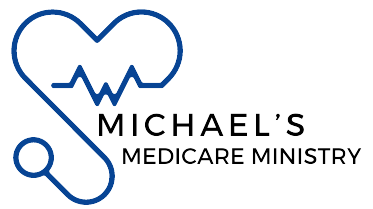Navigating the world of Medicare can often feel overwhelming, especially when it comes to understanding supplemental coverage. Medicare, a federal health insurance program primarily for individuals aged 65 and older, offers basic health care coverage. However, this basic coverage often leaves significant gaps that can lead to unexpected expenses. To fill these gaps, many individuals turn to supplemental insurance options, commonly referred to as Medigap plans. Engaging with a knowledgeable Medicare Supplement Broker in Longview can provide valuable insights and assistance in finding the right coverage to address these gaps effectively.
While these supplemental plans can provide invaluable coverage, the process of selecting the right one is fraught with complexities. Many individuals rely on professionals for guidance, believing they are getting the best advice. However, there are critical insights about these plans that may not always be shared. This blog aims to shed light on aspects of Medicare supplement plans that often remain unspoken, empowering you to make informed decisions about your healthcare coverage.

Understanding Medicare Supplements
What Are Medicare Supplements?
Medicare supplements are policies sold by private insurance companies designed to cover out-of-pocket costs not paid by Medicare. These include deductibles, copayments, and coinsurance. Each Medigap plan is standardized, meaning that the benefits are the same regardless of which insurance company sells it. However, prices can vary significantly, leading to confusion when selecting the best option.
Why Consider Supplement Coverage?
Supplemental coverage can provide peace of mind, ensuring that unexpected medical expenses are manageable. Original Medicare covers a large portion of healthcare costs, but it doesn’t cover everything. Many individuals face high out-of-pocket costs due to deductibles and copayments, especially in the event of major health issues. Thus, understanding the nuances of these plans is vital in choosing the right one for your healthcare journey.
Common Misconceptions
Misconception #1: All Plans Are the Same
One of the most prevalent misconceptions is that all Medicare supplement plans offer identical coverage. In reality, while the benefits for each lettered plan (e.g., Plan F, Plan G) are standardized, the costs and additional benefits can vary widely between different insurers. Some plans may offer additional perks, such as foreign travel emergency coverage or preventive care services, which can significantly affect your overall satisfaction and financial health.
Misconception #2: You Don’t Need Supplemental Coverage
Many healthy seniors believe that if they are in good health, they don’t need supplemental coverage. However, medical emergencies can arise unexpectedly. Even a short hospital stay can result in significant out-of-pocket expenses that can strain a retiree’s budget. Having supplemental coverage ensures that you are protected against unforeseen circumstances, providing a safety net that can alleviate financial stress.

What You Might Not Know About Medicare Supplements
Hidden Costs
While many individuals focus on monthly premiums when considering Medicare supplements, it’s crucial to look beyond this figure. Some plans may appear affordable at first glance but come with high out-of-pocket costs, such as deductibles or copayments, that can add up significantly over time. It’s essential to calculate the total costs associated with each plan to understand your potential financial exposure fully.
Enrollment Periods and Their Importance
Enrollment periods are critical in determining when you can sign up for coverage without facing penalties. The initial enrollment period begins three months before your 65th birthday and lasts for seven months. After this period, you may face higher premiums if you apply for a supplement plan later on. Understanding these timelines is vital to securing the best possible coverage and avoiding unexpected costs.
Pre-existing Conditions and Waiting Periods
Many individuals are unaware that some plans may impose waiting periods for pre-existing conditions. This means you could face out-of-pocket expenses for treatment related to a pre-existing health issue until the waiting period ends. Knowing these stipulations is crucial, especially for those with existing health conditions, as it can impact your financial planning and healthcare access.
The Importance of Customization
One Size Doesn’t Fit All
Every individual’s healthcare needs are unique, yet many choose generic plans. Customizing your coverage based on personal health needs can lead to better financial and health outcomes. For instance, if you have chronic conditions that require regular treatment, a plan with lower out-of-pocket costs for specialist visits may be more beneficial than a standard plan with higher premiums.
Moreover, by taking into account specific medications, treatment frequencies, and specialist requirements, you can tailor a plan that aligns more closely with your lifestyle and financial situation. This personalized approach not only enhances the quality of care you receive but also reduces the financial burden associated with unexpected medical expenses. Ultimately, making informed choices about your healthcare coverage ensures you are better equipped to manage your health effectively and affordably.
Factors to Consider for Personalization
When selecting a plan, consider your health history, current medical needs, and budget. Evaluate how frequently you visit healthcare providers and the types of services you require. Discussing these factors openly with a knowledgeable source can lead to better decisions, ensuring that your chosen plan aligns with your healthcare needs and financial situation.
What to Ask When Considering Coverage
Key Questions to Pose
When exploring options, asking the right questions can provide valuable insights into the best plan for your situation. Consider inquiring about:
- Coverage specifics for your current healthcare needs: Does the plan cover your current medications or necessary treatments?
- The process for selecting specialists: Are you required to use specific doctors, or do you have the flexibility to choose your own?
- How the plan handles out-of-network services: What are the costs associated with out-of-network providers?
Understanding Your Rights
It’s important to understand your rights when it comes to selecting and switching plans. Medicare provides various protections for beneficiaries, including the right to appeal decisions made by your insurance company. Familiarizing yourself with these protections can empower you to make informed choices and advocate for your healthcare needs.
The Role of Personal Experience
Learning from Others’ Experiences
Listening to testimonials and experiences from others can be invaluable when making decisions about supplemental coverage. Engaging with a community of individuals who have navigated similar challenges can provide perspective and guidance. Online forums and support groups can be excellent resources for sharing knowledge and experiences related to Medicare and supplemental insurance.
The Value of Seeking Multiple Perspectives
Seeking opinions from various sources can help you avoid pitfalls and make more informed choices regarding your supplemental coverage. Consult friends or family members who have experience with Medicare supplements and seek advice from trusted healthcare professionals. Multiple perspectives can provide a broader understanding of the options available and help you identify potential issues before they arise.
Additionally, participating in local support groups or online forums can expose you to a wealth of shared experiences and insights, enriching your knowledge base. Engaging with diverse viewpoints allows you to make decisions rooted in real-life experiences, ultimately guiding you toward the most suitable coverage for your needs.
The Importance of Shopping Around
Comparing Plans and Pricing
One of the best ways to ensure you get the best deal on supplemental insurance is to shop around. Prices for the same plan can vary significantly from one insurance company to another. Comparing plans can help you identify the best value for your specific needs. Consider using online comparison tools or working with a knowledgeable individual who can help guide you through the process.
Utilizing Resources Wisely
Many resources are available to help you navigate the Medicare landscape. The official Medicare website offers a wealth of information regarding coverage options, enrollment periods, and costs. Additionally, local health insurance counseling programs can provide personalized assistance, ensuring you have the information needed to make informed decisions.

Common Pitfalls to Avoid
Not Reviewing Your Plan Annually
Many individuals set their Medicare supplements in place and forget about them. However, it’s crucial to review your plan annually. Your healthcare needs may change, or new plans may become available that better suit your needs. Regularly assessing your coverage can help you avoid costly mistakes and ensure that you are receiving the best possible care.
Relying Solely on Word of Mouth
While personal recommendations can be helpful, relying solely on them can lead to narrow perspectives. What works for one individual may not necessarily work for another. It’s essential to conduct thorough research and consider all factors, including your unique health needs and financial situation.
Introducing Michaels Medicare Ministry
At Michaels Medicare Ministry, we understand the challenges that come with navigating Medicare supplements. Our experienced team is dedicated to providing personalized guidance to help you find the right coverage tailored to your unique needs. We believe that informed choices lead to better health outcomes, and we are here to support you every step of the way.
Final Words
Navigating the intricacies of Medicare supplemental coverage can be daunting, but being informed is your best defense against making costly mistakes. As you explore your options, remember to dig deeper, ask questions, and seek out the right resources to ensure your healthcare needs are met. Understanding what may not be readily disclosed about these plans can empower you to make choices that lead to better health outcomes.




